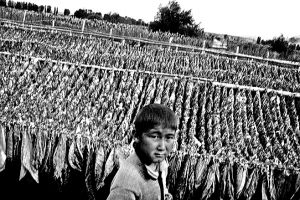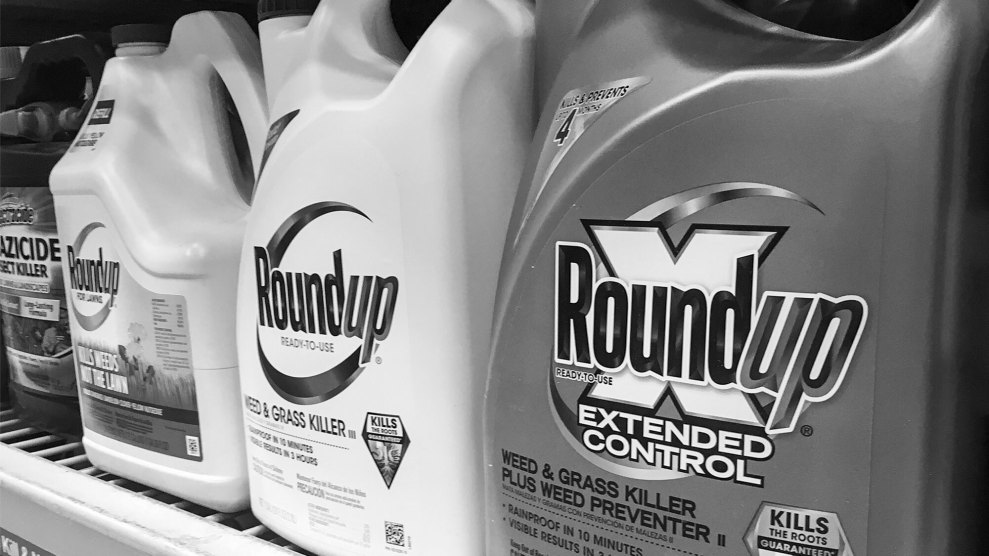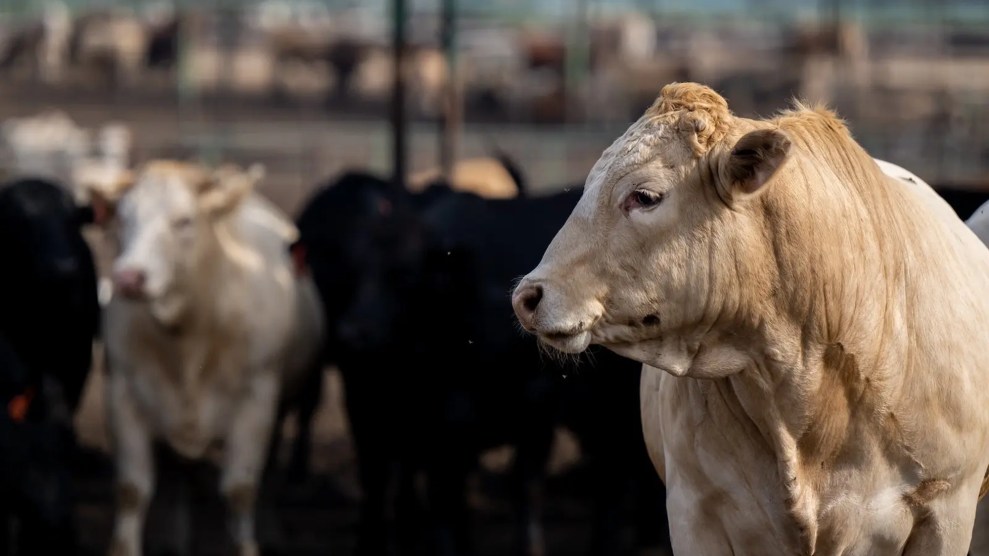
Moises Saman/Human Rights Watch
In case you needed one last reason to stop giving cigarette companies your hard-earned cash, The Guardian reports today that “activists found children as young as 10 picking tobacco” destined for Philip Morris cigarettes. According to NYT, children working in the remote Kazakhstan fields “developed red rashes on their stomachs and necks” while harvesting the leaves.
What, you thought Philip Morris International’s cigarette manufacturing labor practices were somehow more defensible than their global marketing techniques? This Human Rights Watch report released today should disabuse you of that notion. Some salient points:
Human Rights Watch documented 72 cases of children working in tobacco in 2009. Experts consider tobacco farming one of the worst forms of child labor, meaning children under the age of 18 should not be working in it. Children face particular risks associated with the handling of tobacco leaves and exposure to pesticides…
We found six families who were trapped in situations amounting to forced labor,” [senior researcher Jane] Buchanan said. “Employers paid them only after eight or nine months of farming tobacco, made many of them do household chores and other farming for no pay at all, and on top of everything, confiscated their passports to coerce them to stay on the job.”
In a few other cases found by Human Rights Watch, these factors resulted in debt bondage, where families worked a whole season only to find themselves in debt to the farm owner after the harvest and were required to work additional seasons to pay off the debts.
Read the rest of the report here.
[H/T FP Morning Brief and MoJo reader Rhoda Feng.]
















